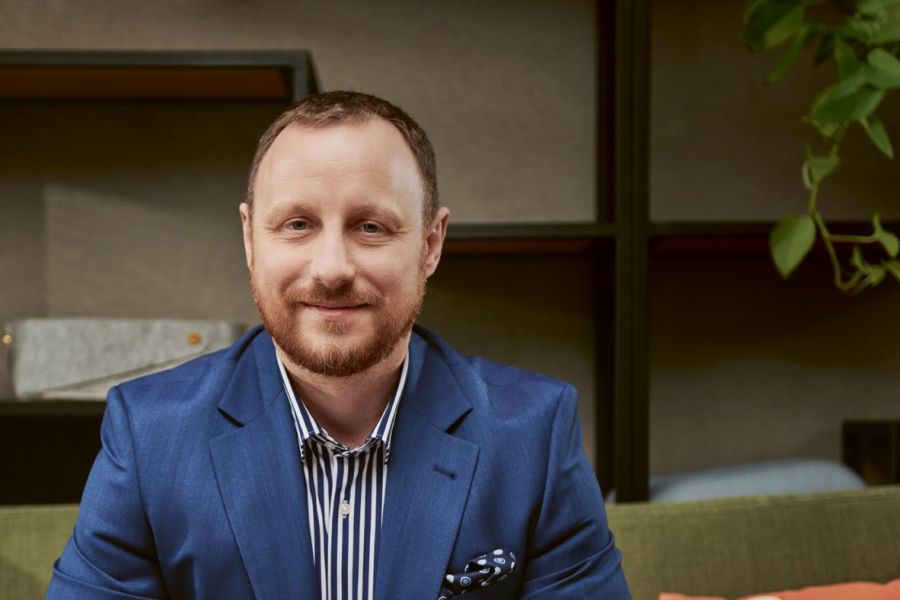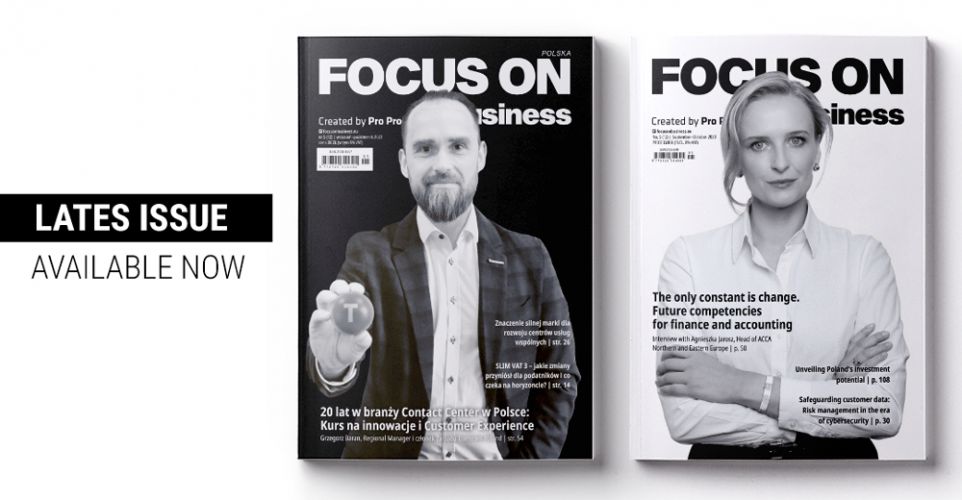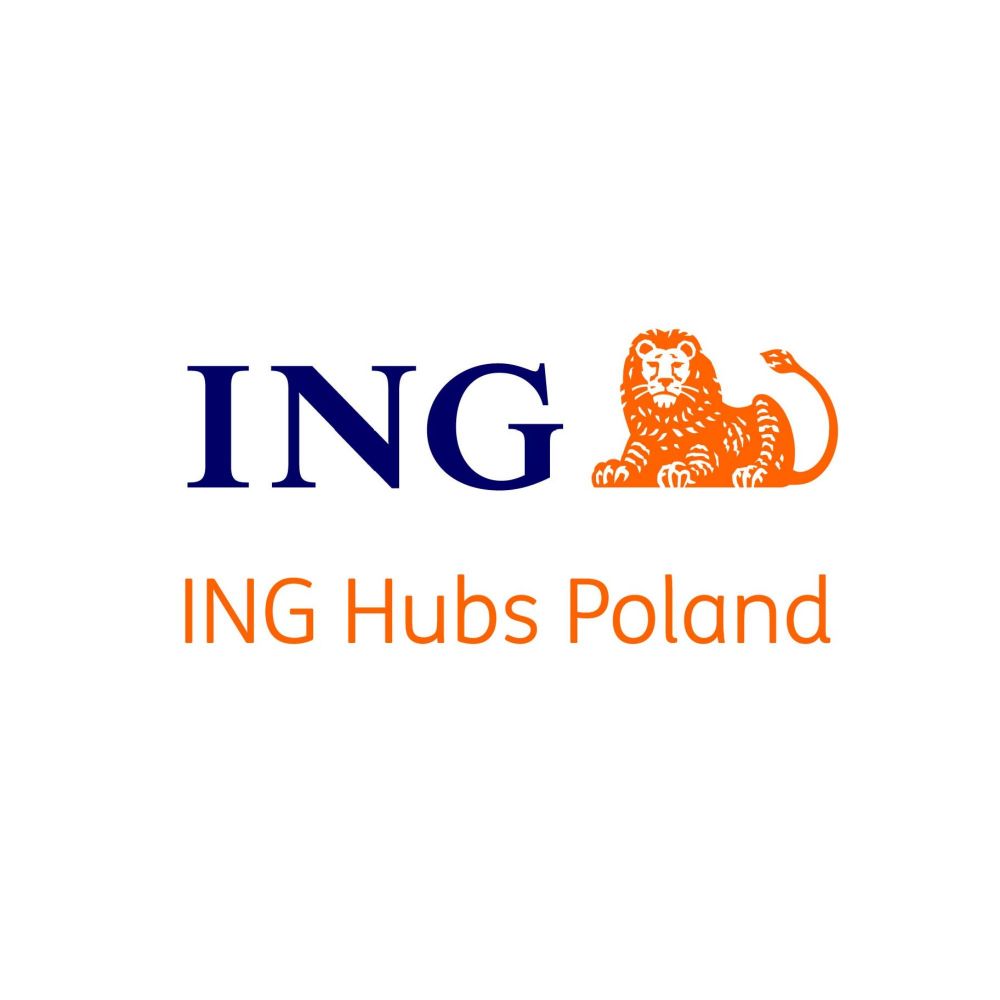People are not to be managed

We talk with Paweł Michalik, Head of ING Hubs Poland, about the leadership and transformation.
FOCUS ON Business: Coping with the ever-evolving business landscape demands embracing change as a fundamental requirement for growth and success. What is your view on transformation issue?
Paweł Michalik, ING Hubs Poland: I would go further – if we do not grow, we go backwards. Especially in today's dynamically changing environment – be it business, geopolitics or climate. In an organization that I'm pleased to lead, we're putting the greatest emphasis not on the extensive development of scope, but on the development of people. This is our strategy – and it is the people who are most important, it is them we fully trust, they are supposed to feel good here and fulfill professionally. Why? Because only then will they reach their full potential and grow together with the organization.
What, in your opinion, are the fundamental aspects that define the role of a leader?
I am long way from understanding the tasks and mission of a leader as a formula that assumes people need to be managed — we're all professionals, we have skills and experiences, we can manage ourselves, our time, our goals, and our tasks. In an ideal world, people are inspired, experimented with and learned from their mistakes, appreciated their progress, and created working conditions tailored to their needs. The leader is for the people, not the people for the leader. So, if the employer, the supervisor will do everything to ensure that the employee has the comfort of work, the necessary data, information, context and direction in which the company is going, then you can be sure of achieving the strategic goals of the organization.
On the other hand, we also appreciate the diversity in styles, not every leader must choose the same path, but everyone should be able to use the strongest competences of every employee – I think this is a recipe for a healthy and developing organization.
It sounds like the "Servant leadership" theory.
I am not particularly fan of the term – because I do not think that whoever should serve anyone. We are equal, and we have a common goal in fact – and we should support each other. So, I generally agree with the concept – it is definitely more forward-looking than traditional management methods. I believe that a leader focused on developing people and building clusters, understanding what the long-term good of organizations, people and society is, indirectly by building an environment that supports cooperation rather than competition, will also be an effective and efficient leader in a strategic perspective. I often say in the company that I care to work with nice people, and I am lucky to have it. Skills and expertise are important, but it is commitment, sharing values and objectives that makes a real difference.
This is an interesting thesis, especially in a technology company.
I believe that it works, and we have strong evidence of that. Everything can be learned, certificates and experience gained, but the culture of organization and long-term motivating goals must already be worked out together. It's also a leadership role.
Let's go back to a new approach to management for a moment. So, what does that tell us?
The simplest way to put it is that not only in economics, but also in social terms, is what we talked about at the beginning. If the manager is stuck in terms of his skills in the past era, it will be increasingly difficult for him to meet the demands of today's business. Besides, today's teams, especially the young ones, do not want and are not able to work effectively with someone who adheres to the principle of "command and control".
This approach may have been necessary in the 1990s. In the 1990s, when we were building a real market economy in Poland and we were learning business, but today, fortunately, is slowly beginning to be secondary.
Let us also remember the express revolution that we experienced during the pandemic. Overnight, it turned out that we had to work remotely. A leader who for his own safety likes to control who, how much time spends at the computer writing code or doing other work will have a big problem. This shared understanding of the purpose of work and trust is a measure of success, not of performance.
So, what has changed in the last 25 to 30 years?
In the early 1990s, we had political transformation and huge unemployment. The rules of cooperation often differed strongly from those today in the context of the manager-employee relationship. The employer's market reigned. Then things started to stabilize. The manager was usually a more experienced person with a lot of knowledge. They gave out tasks to their subordinates (the name itself indicates an inequality), often talked about how to perform them (that is, micromanagement), and then checked or controlled.
Today, the manager is hiring people with the right skills, to allow everyone to perform the best assigned task. Being a leader of ING Hubs Poland, it is not my role to be the most competent in the subject areas (although it is very rare to be able to do this at all in large professional organizations) – everyone has their job in the organization and we employ topclass experts for technical tasks. In fact, it is very good that it is in the organization, and not necessarily among the leaders, that we will find more knowledge. I and the entire management team at the company are there to create the conditions for good work. I organize, I care about what the teams need to achieve the goal,
I look up and at what is on the horizon to make sure that as an organization we can respond to the changing economic and social reality.
How many leaders do you have on board?
It's not that simple to answer – it's not just the number of units – the number of managers is not necessarily the number of leaders. There's no equal sign here. We know that there are informal leaders – people who cannot be overestimated in the organization. These are the people who, without teams hierarchically, can motivate teammates, show meaning, explain complexity, and encourage greater engagement.
There are also managers who are not yet the leaders in the full sense of the word. We try to help them in different ways to get on this path through mentoring and development programs.
How can ING Hubs Poland grow? You are part of the ING Group. Who do you see as your competitor? Is there a need for development or it is enough to simply provide services to your customer?
We have been operating on the Polish market for exactly 20 years. At the beginning, our activity was based on several SLAs with two ING units in Poland. Then we expanded our services by supporting more ING units around the world – we functioned like a shared services center. Today we are much further along this path, we are part of ING's global structures, and our relationship is no longer about supplier-customer relationship. Today, in many areas, it is us who show what actions or processes need to be developed, prepared and implemented. This means that we have a stake in the decisions about how the group works globally.
As far as competition is concerned, we are looking at it from the point of view of the labor market and competition for talent. We are looking for smart and competent people who will want to grow with us, because the quality and quantity and scale of our business is growing in a global context. This also makes the competences we need unique.
Let's look at the next 10-15 years. How do you see the future of both the leadership and the company?
I think there will be little change in the way we operate – in other words, we will continue to adapt flexibly to change. As for the changes themselves, they will be accelerating. And that's probably going to be the biggest challenge for the companies, but it's also going to be the biggest challenge for the leaders. I believe that teamwork, a shared sense of responsibility for managing a unit or a company, agility, emphasis on what someone knows and not what they have "papers" for, simple satisfaction and joy of work – all this should become the standard in business.
In turn, in the case of the future of ING Hubs Poland, I firmly believe that the path we are following, i.e. being an equal partner of ING Group at the management level, is appropriate and promising.
Thank you for the interview.
This article comes from magazine:
FOCUS ON Business #12 September-October (5/2023)
 Check the issue
Check the issue








